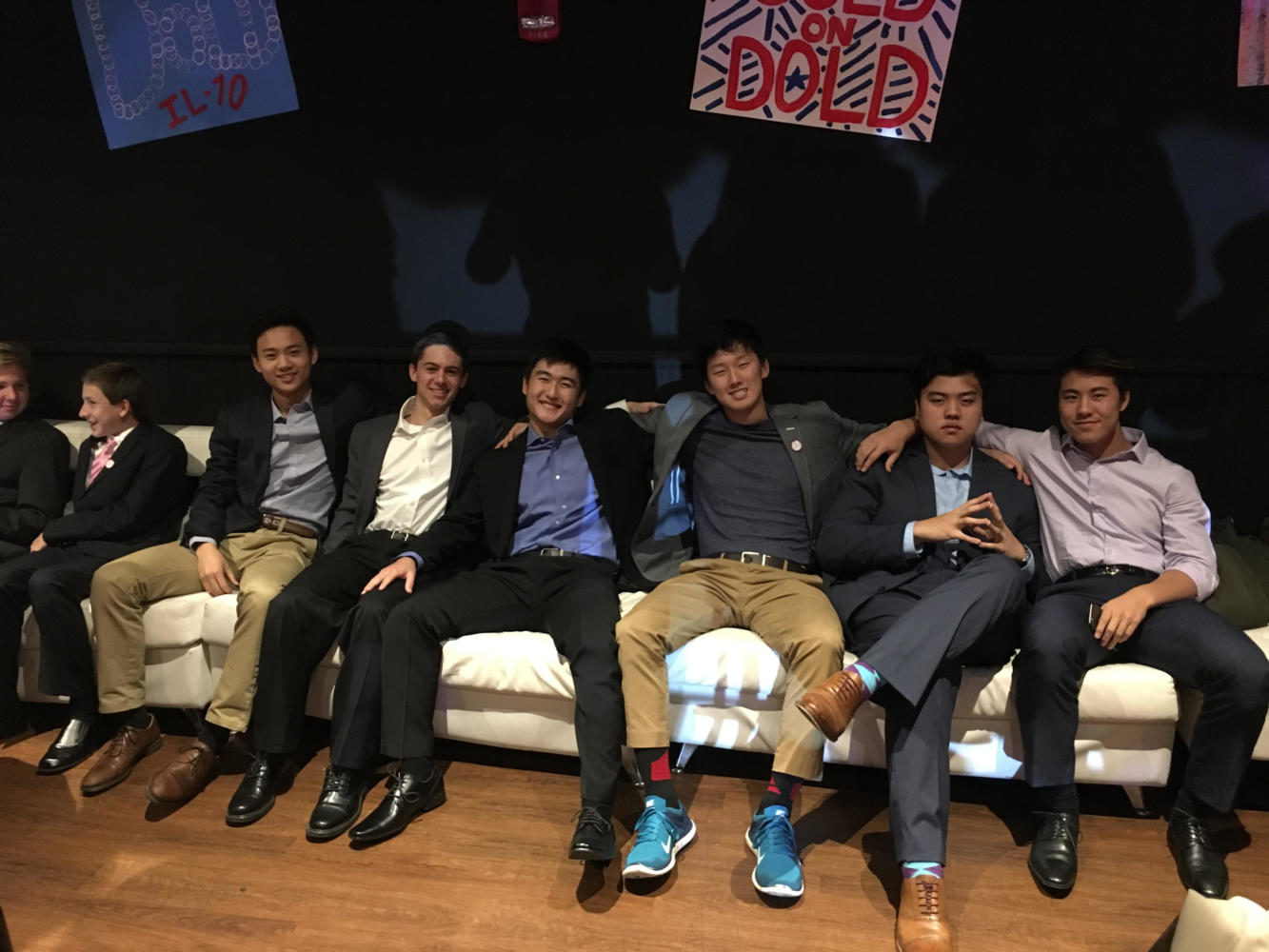It’s on us
Last year, President Barack Obama spoke to 500 youth leaders in London.
“You’ve never had better tools to make a difference. Reject pessimism, cynicism and know that progress is possible,” said Obama, “Progress is not inevitable, it requires struggle, discipline, and faith.”
As us seniors leave VHHS, we can break from its confines truly make a difference in the world. While VHHS certainly does not discourage political involvement– many students at our school have found ways to be engaged –it certainly adds to one’s plate. To be frank, Keeping Up with the current administration could be its own reality show.
Nevertheless, we have all seen the quote (that Gandhi may or may not have said) that appears in Instagram bios: “Be the change you wish to see in the world.” Cliché as it is, it’s true. If we wait until we have settled down to try to change the world, we might say we’re too busy with our family, or our careers. We’re going to be busy until we retire– I don’t think any of us can afford to wait to fight for climate-friendly policies until we’re that old.
Don’t let cranky baby boomers fool you into thinking that our generation is significantly less politically involved.
“Millennials display about the same level of political interest as the youngest generation did in 1987, and millennials contact local government and work with others in the community at essentially the same rates as did youth in the earlier surveys,” said Russell Dalton of The Washington Post, “And today’s youth are likely to get involved in protests or other political confrontations.”
Nevertheless, a huge subject of contention is the low voter turnout rates for the second largest voting bloc in the country. Evidence suggests that as the social clock– events such as starting a career, getting married, and starting a family– has delayed, so too has the age at which people become consistent voters.
It’s disturbing that we are inheriting a country that we’re putting little say into.
“Campaign outreach often overlooks young voters,” said Khalid.
It’s no wonder that politicians have less regard for issues that concern youth! If we are a weak political force, then they feel little need to represent our interests; we don’t threaten their seats.
While the current political climate is hyper-partisan, it absolutely should not stay that way. We as young people should lead the charge in understanding those on the other side of the spectrum.
Unfortunately, Trump’s campaign relied too heavily on attacking marginalized groups in our society. While compromise is necessary, sacrificing the rights and liberties of people– whether it be based on their racial background, religion, sex, gender, sexual orientation, ability– is not an option.
Many politicians use divisive rhetoric to win over voters. While hoping to reduce demographic-related tensions is ambitious, we’re closer than we’ve ever been to doing so. Gay marriage was legalized in 2015; Barack Obama was the first African-American president; Hillary Clinton, the first female to be a nominee for a major political party, won the popular vote.
Millennials are the most diverse voting bloc in the country’s history. That in and of itself will lead to more social harmony. By mere exposure, the likelihood to develop and maintain prejudices against other groups is greatly reduced.
Additionally, millennials are also the first group to have matured as technology and social networking did. Not only are we technologically adept, but we have a unique opportunity to understand other people like never before.
We have the capacity to become a powerful force for change. Now, we just need to effectively use the tools available to us to make our voices heard.
Young adults can educate others, run for student office, demonstrate, create a public awareness campaign, donate to a meaningful cause, boycott a company, go to meetings for local party officials, work on a political campaign, know what constituents value, contact their representatives, do community outreach, educate themselves politically by subscribing to a publication and learning about American history and civics, and be locally involved by attending town halls, joining a voting league or political organization, working at a polling place, and voting.
Since political involvement is a time investment, make sure to focus on a few issues that you’re most passionate about; it is not your duty as a citizen to be held accountable for every issue. Schedule time for your political engagement– whatever it may be– so as to avoid being stretched out too thin.
For returning VHHS students, there will be a new way to be involved in the school and civically engaged: the Global Goals.
Part of the United Nations Development Program, the Global Goals for Sustainable Development, encourages ordinary citizens to improve the world in which they live. Out of the seventeen goals, VHHS will be joining the international initiative to focus on goal five, which is to “achieve gender equality and empower all women and girls.”
For us graduating seniors, it’ll be even easier to become civically engaged. Join a Young Republicans or Young Democrats club; intern for a government official; join a protest; go on a service trip.
It’s easy to feel powerless and even easier to forget how much influence young people have had on social movements in the past.
“Young people have advocated for child labor laws, voting rights, civil rights, school desegregation, immigration reform and LGBT rights,” said the Anti-Defamation League. “Because young people often have the desire, energy, and idealism to do something about the injustice they see in the world, they are powerful agents for change.”

